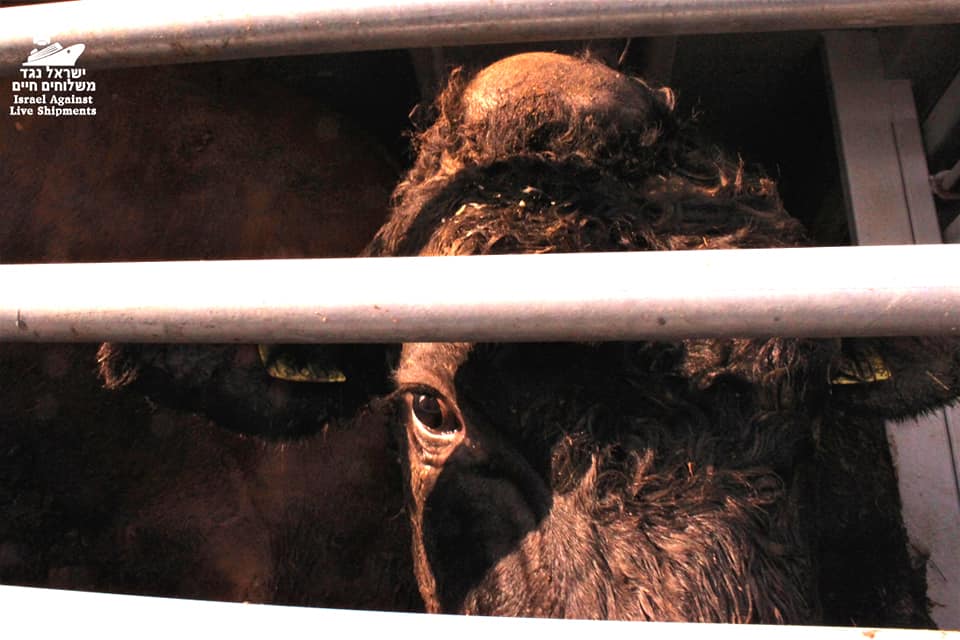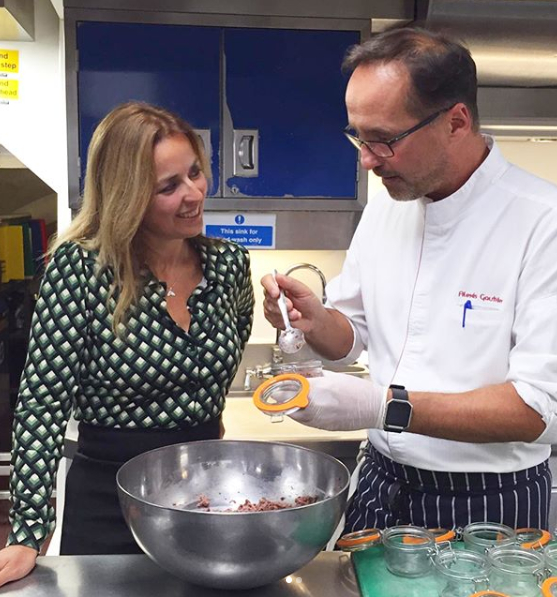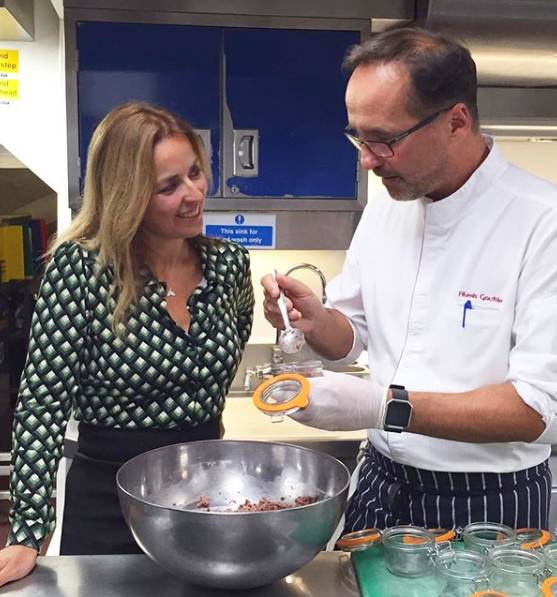Worldlog Marianne Thieme 4 de septiembre de 2018
The recess has finished. It was a busy recess because I am working on a new book about the importance of idealistic politics and on a new documentary together with our scientific bureau (the NGPF). I will tell you more about that later.
The fact that idealistic politics remains necessary was confirmed several times this summer. While summer often brings peace and joy for people, this summer was hell again for millions of animals. One of the most horrifying violations of animal welfare is the cruel transport of animals within and outside of Europe: animals that are transported from EU countries to countries like Turkey and Israel, travelling for days and sometimes weeks, who become overheated, dehydrated or die because they get jammed. Endless waiting times, for example at the Bulgarian-Turkish border, causes shocking and unacceptable animal suffering.

Millions of animals suffer during long transports
Approx. 23 million of day-old chicks are transported by plane from the Netherlands to other countries every year. And from Belgium even more than 100 million chicks get transported. Sometimes, the abominations that take place with that make the news, such as the twenty thousand of chicks that were found dehydrated, grilled and gassed in their transport container at the Belgian airport Zaventem. This is only the tip of the iceberg.
The Party for the Animals wants to stop such suffering of animals as soon as possible. For that reason, we have asked for attention for these unjustified actions in different ways this summer, both in the Netherlands and in Europe. We asked the responsible Dutch minister and the European Commission critical questions. Our MEP Anja Hazekamp portrayed the violations of European agreements on animal transports at the ports of Slovenia and Croatia: animals on transports die because of the heat, weak animals were forced on board with violence, there were no vets and regulations were not observed.

This summer there was a lot of animal suffering in the Netherlands too: on the 18th of July, 1,200 pigs died because of suffocation. The ventilation system was defective, the alarm did not work, and the owner tried to hide these sad circumstances. In the Netherlands, piglets are fattened mechanically for slaughter. Food, water, ventilation: everything is fully automatic and there is no human intervention at all. The air the animals have to live in is poisoned, so if the ventilation system breaks down there is nobody to rescue the animals.
Luckily, people are increasingly opposing to the way animals are treated. Residents try to block the arrival of a megastable in their vicinity more frequently. On the 25th of August, people organised the first Animal Rights March in the Netherlands and they demanded to stop the exploitation of animals. The march took place in various cities in countries such as Luxembourg, New Zealand, the Philippines and Canada.
And there are more positive developments: companies such as WeWork (6,000 employees) have stopped serving meat and many more educational institutions are changing to vegetable food. The German Minister of the Environment recently decided that vegetarian meals will be served during all official government events. The products must then preferably be organic, from the current season, local and/or fair trade. That is how it should be: the government must set the right example. That is why I have also asked the Dutch government to change to vegetable catering.

Marianne visiting vegan Michelin star chef Alexis Gauthier
And that it is simple to eat delicious vegetable food was evidenced by my visit to Alexis Gauthier, vegan and French Michelin star chef, who has his restaurant in London. His foie gras – causing much animal suffering – used to be really famous, but he never wants to make it again. Gauthier now has a vegetable version, the “faux gras”, based on lentils, walnuts and shallots. It is just so nice and so free from animal suffering.
In Gauthier’s restaurant I interviewed scientist Marco Springmann of Oxford University, who told me why it is better not to eat any animal products. The interview is for our new documentary, which will be released at the start of next year. To be continued!
Until the next time.
Marianne
El receso de verano ya ha terminado. Fue un receso bastante ocupado, porque estoy trabajando en un nuevo libro sobre la importancia de la política idealista y en un nuevo documental junto con nuestra oficina científica (el NGPF). Más sobre eso les contare más tarde.
El hecho de que esa política idealista sigue siendo necesaria ha sido confirmado varias veces este verano. Si bien el verano a menudo brinde paz y diversión a las personas, este verano fue otro infierno para millones de animales. Una de las violaciones más horribles del bienestar animal es el horrible azote de animales dentro y fuera de Europa: transportes con animales transportados desde la UE a países como Turquía e Israel. Ellos pasan a veces dias o semanas completas en la carretera, en los que los animales se calientan, se sucumben por la presion. El interminable tiempo de espera en, por ejemplo, la frontera búlgaro-turca causa un sufrimiento animal impactante e inaceptable.

Millones de animales sufren durante los transportes
Desde los Países Bajos, alrededor de 23 millones de pollitos de un día son exportados a otros países cada año. Incluso más de 100 millones de pollos se exportan desde Bélgica. A veces los horrores que tienen lugar aquí son la noticia, como los veinte mil pollitos que se deshidrataron este verano, asados y gaseados en su contenedor de transporte en el aeropuerto belga de Zaventem. Son solo pocos acontecimientos de muchos mas que estan sucediendo.
El Partido para los Animales quiere que se termine cuanto antes el gran sufrimiento de los animales. Es por eso quehemos llamado la atención sobre esta injusticia este verano en todo tipo de formas, tanto en los Países Bajos como en la Unión Europea. Hemos hecho preguntas críticas al ministro holandés responsable y a la Comisión Europea. Nuestra eurodiputada Anja Hazekamp ha documentado las violaciones de los acuerdos europeos sobre el transporte de animales en los puertos de Eslovenia y Croacia: los animales transportados sucumben al calor, los animales débiles son obligados a subir a bordo con una fuerza bruta. No habian veterinarios presentes y las normas no se aplican.

El sufrimiento animal este verano fue una vez mas enorme en los Países Bajos: el 18 de julio, 1200 cerdos murieron por asfixia en un establo. El sistema de ventilación estaba defectuoso, la alarma no funcionó y el propietario trató de ocultar este triste evento. Los lechones se engordan completamente para el sacrificio en los Países Bajos. Alimentación, agua, ventilación: todo está completamente automatizado y no hay ningún ser humano involucrado. El aire en el que deben vivir los animales es venenoso, por lo que si falla la ventilación, no hay nadie para salvar a los animales.
Afortunadamente, los ciudadanos se oponen cada vez más a la forma en que tratamos a los animales. Los residentes bloquean cada vez más la llegada de una mega establo en su vecindario. El 25 de agosto, los ciudadanos organizaron la primera Animals Right March (Marcha por los derechos de los animales) en los Países Bajos y exigieron el fin de la explotación de los animales. La marcha tuvo lugar en diferentes ciudades de países como Luxemburgo, Nueva Zelanda, Filipinas y Canadá.
Y hay mas desarrollos positivos: compañías como WeWork (6,000 empleados) dejan de servir carne y más y más instituciones educativas están cambiando a la nutrición vegetal. El ministro de medio ambiente alemán ha decidido recientemente que los platos vegetarianos se llevarán a cabo durante todas las ocasiones oficiales del gobierno. Los productos por preferencia deberan ser orgánicos, adaptados a la temporada actual, locales y / o de comercio justo. Así es como debería ser: el gobierno debe dar un buen ejemplo. Es por eso que también le pedí al gobierno holandés que cambie a una restauración de vegetales.

Marianne Thieme visita al chef estrella Michelin frances Michelin Alexis Gauthier
Y que podemos comer vegetariano en forma deliciosa resulto una vez mas de mi visita a Alexis Gauthier, vegano y chef estrella Michelin francés que tiene un restaurante en Londres. Su foie gras, que trae mucho sufrimiento animal, fue una vez famoso, pero nunca mas quiere volver a hacerlo. Gauthier ahora tiene una versión vegetal, la «hierba falsa», basada en lentejas, nueces y chalotas. ¡Tan sabroso y libre de sufrimiento animal!
En el restaurante de Gauthier entrevisté al científico Marco Springmann de la Universidad de Oxford, quien nos dijo por qué seria mejor no comer productos de origen animal. La entrevista es para nuestro nuevo documental que se lanzará a principios del próximo año. Para continuar!
Hasta la proxima!
Marianne